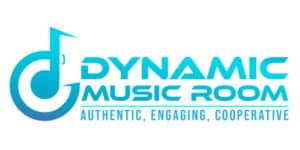Did you land an interview for a music teaching job but you don’t know what you need to bring?
Are you trying to be prepared and get all your ducks in a row before you get an interview for a music teaching job?
The job hunting process is stressful. But to lower the stress level of this process, you need to make sure that you’re prepared.
Part of this preparation includes knowing what to bring to a music education interview.
When going to an interview in music education, you need to be prepared and bring some following items:
- Copies of your resume
- Copies of your cover letter
- Sample lesson plans
- Samples unit plans
- Scope and sequence
- Example of classroom management expectations
- Samples of concert material
- Questions for the interviewers
Look ahead for a brief description of each of these elements and why they are an important part of the interview process.
Table of Contents
Materials You Need For A Music Teacher Interview
Resume copies
The name of the game when it comes to interview materials is to seem over prepared and organized.
Though most people on the interview panel will be given copies of your resume, you still need to bring copies yourself. I recommend bringing at least five copies unless you know the exact size of the interview panel.
Often, early in the interview, the leader of the panel will say if they’ve brought copies of the resume for the members.
If they have, I make a very subtle show of saying “OK” and putting my extra copies to the side. This shows them that I came prepared even though you don’t need them.
Copies of cover letter
I do a similar thing with copies of cover letters. Often, if the panel has handed out resumes, they will also have handed out copies of your cover letter.
If you do bring it in and the panel says nothing about whether they’ve handed out the resume or cover letters, try to make a discrete point during the interview to ask if anyone would like copies of your resume or cover letter.
Even if they say no, you’re showing that you’re prepared and organized.
Sample lesson plan
I always make sure to bring a sample lesson plan or two.
If I’m teaching elementary, I would bring a sample lower elementary and upper elementary plan.
For secondary people, I would recommend bringing a sample lesson from two different classes or at two different points in the year.
You don’t need as many copies of the lesson plans as you do resumes or cover letters. You should be able to get away with just one or two copies of each lesson plan.
Don’t offer the lesson plan up front at the beginning of the interview, but wait for a question related to how a music class would look or what a lesson is like with you.
Then you can throw in the good old: “well, as this lesson plan shows…” And then hand it out for them to look over.
Copies of unit plan
Unit plans in music look different from the general education classroom, but the concept still applies.
A unit plan in music is some sort of long term planning over weeks.
In elementary music, this may be a series of activities, songs, or lessons covering a single concept such as quarter note versus eighth notes.
You don’t need to go into detail in this document on what each activity means or how each lesson will go, but your goal is to show that you have this thought out and planned.
For secondary folks, this may be a schedule or plan to get kids prepared for a concert, and the document should show how you work from introducing the pieces all the way to the concert date.
As with lesson plans, you won’t need more than one or two copies of this.

Scope and sequence
A scope and sequence is a year-by-year general guide for when and what you’re teaching to each grade level or class you see.
This doesn’t have to be too detailed, but having one that you’re comfortable talking about shows the interview panel how organized and intentional you are about your teaching.
Having one or two copies of this would be just fine.
Here is one sample from a previous school:
Sample behavior management expectations
This one is more optional, but including it still reflects well on you.
Bring in a copy of a behavior management poster or sequence of steps that you go through for behavior.
For me, this is a one-page paper describing the steps I go through for behavior management. As with many of these documents, bring them up in relation to a question they ask.
There will be a question at some point about behavior management, so be very prepared to talk about how you handle classroom behavior.
Sample concert repertoire
As music teachers, we’re expected to do concerts. It’s just part of the job.
In elementary and secondary music, I recommend bringing at least two examples of what your concert may look like.
This can be a simple concert program, and you would hand out this program in relation to a question about concerts.
As they look at the programs, walk them through the process of what it takes to set up for a concert and how you plan one.
Remember, at their core, administrators just want someone who can jump in and take over these kinds of things without a lot of micromanagement on their part. Showing you’ve got this well in hand goes a long way towards seeming like the best candidate.
Questions for the interview panel
At the end of every single interview, there’s always a time for questions on your part. Not having any questions can actually be a bad thing.
So you need to be prepared with questions. Here are some sample questions you may want to ask:
- What would you say is the strongest aspect of your students? Weakest?
- Why did each of you choose to work here in this district?
- What does the interview process look like going forward?
- What do you see as the future of music in your school district?
Note: Be sure not to ask a question they already answered as part of the rest of the interview. This looks very bad on your part.
Conclusion
I hope you found this list of what to bring to a music education interview helpful.
I’ve applied for several jobs over the years myself, and I’ve helped many of my student teachers find jobs. These things always impress the interview panel, and it helps you look like the best candidate for the job.
Did I miss anything? If you think so, leave a comment below and help us all out.

